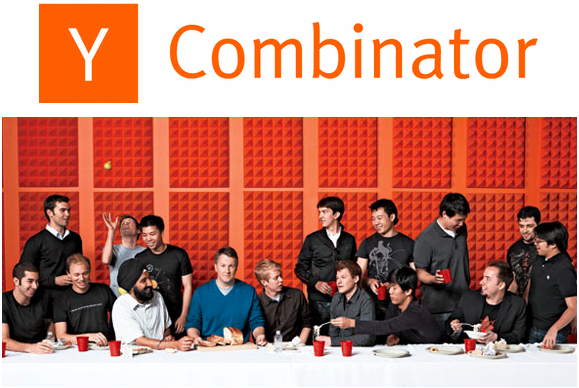Introduction
In Nigerian cities, where traffic snarls choke roads and daily life demands improvisation, food delivery has long been an elusive promise. Many apps have tried to conquer the challenge, most have failed or faltered. Yet in the middle of this high-risk environment, Chowdeck has carved a name for itself. Sleek branding, aggressive expansion, and a startup spirit fueled by hustle have made it a darling of Nigeria’s tech community. But Chowdeck is more than an app—it is an experiment in how to build logistics, trust, and culture in a country where infrastructure often works against you. To understand Chowdeck is to understand not only a startup but the broader story of how African entrepreneurs navigate chaos to create value.
The Spark
Every startup begins with a spark: a frustration, a gap, an unmet need. For Chowdeck, that spark came from observing how urban Nigerians wanted convenience but rarely got it. Restaurants had demand, customers had hunger, but logistics broke the chain. Traditional delivery was unreliable—drivers delayed, meals cold, communication messy. Founders of Chowdeck envisioned an alternative: tech-enabled logistics blending speed, trust, and user-friendly design. Their insight was simple but radical: in a market where people expect failure, build something that simply works. This ethos—reliability as innovation—became foundation of Chowdeck’s early growth.
The Market Reality
Nigeria is brutal environment for startups. Internet penetration uneven, power outages constant, inflation rampant, infrastructure weak. Yet it is also goldmine: population massive, youth-driven, mobile-first. Food delivery sits at intersection of culture and economy—Nigerians love dining out, ordering in, experimenting with cuisines. But affordability remains constraint. Chowdeck confronted reality head-on: prices had to match wallets, logistics had to work despite chaos, trust had to be built meal by meal. Success meant not just copying models from abroad but localizing ruthlessly, adapting Silicon Valley dreams to Lagos traffic and PHCN outages.
The Hustle of Growth
Growth for Chowdeck was not linear—it was hustle. Drivers recruited aggressively, restaurants onboarded personally, users wooed with promotions. Early days meant firefighting: apps crashing, orders lost, couriers quitting mid-shift. Founders doubled as customer service reps, logistics managers, even delivery riders. Startup life blurred roles—what mattered was survival. Growth demanded speed: iterate fast, patch bugs overnight, experiment constantly. Hustle became identity: Chowdeck was not polished machine but scrappy survivor, embodying energy of Nigerian entrepreneurship. Each order fulfilled, each customer retained, each restaurant satisfied was victory wrestled from chaos.
The Culture of Trust
Trust is fragile currency in Nigerian consumer markets. People assume services will fail, expect scams, doubt promises. For Chowdeck, winning trust became strategy. Transparent communication with users, responsive support, visible branding, reliable delivery—all cultivated credibility. Couriers trained to smile, restaurants encouraged to meet standards, customers incentivized to share experiences. Slowly, trust grew—word-of-mouth spread, loyalty formed. Chowdeck proved that in markets riddled with broken promises, simply delivering as promised becomes radical act. Trust, once built, became moat—competitors struggled to match consistency, even with deeper pockets.
The Shadows of Labor
Yet beneath Chowdeck’s story lies labor reality. Couriers—often young men on bikes—carry weight of system. Long hours, exposure to traffic risks, unstable pay structures. Gig work glamorized as hustle, but fragility persists: riders lack protections, benefits, security. Chowdeck faces same ethical questions as global peers: how to balance growth with fairness, flexibility with protection, efficiency with dignity. The future of Chowdeck will depend not only on app design or funding rounds but on how it treats those pedaling its promise across cities.
Stories from the Road
Take Emmanuel, rider who joined Chowdeck to fund his studies, proud of independence but weary of Lagos traffic. Or Ada, restaurant owner who credits app for doubling her sales, yet complains about commission cuts. Or Ifeanyi, young professional who orders daily, praising reliability compared to past apps. Their stories show ecosystem Chowdeck built: workers, partners, users intertwined in network of trust, tension, and hope. Chowdeck is not abstract startup but lived reality shaping lives daily.
The Broader Picture
Chowdeck is emblem of Africa’s startup moment. Young entrepreneurs leveraging tech to solve local problems, global investors watching keenly, communities adapting new habits. Success not guaranteed—regulation may bite, competition may rise, economy may falter. But Chowdeck illustrates resilience: startups in Nigeria cannot wait for perfect infrastructure—they build despite imperfections. In doing so, they rewrite playbook of entrepreneurship, showing world that innovation is not only about advanced AI or billion-dollar valuations but about meeting basic needs reliably in toughest conditions.
Conclusion
Chowdeck is more than food delivery—it is mirror of Nigeria’s startup ecosystem. A story of hunger and hustle, of trust and fragility, of potential and precarity. It reveals what it takes to build business in market where every delivery is battle against odds, and every success feels improbable. For founders, it is proof that vision and grit can create value. For riders, it is livelihood fragile but real. For users, it is convenience turned into habit. Chowdeck’s journey is unfinished, but already it teaches lesson: startups thrive not by importing models but by wrestling with reality, turning chaos into opportunity, one delivery at a time.

